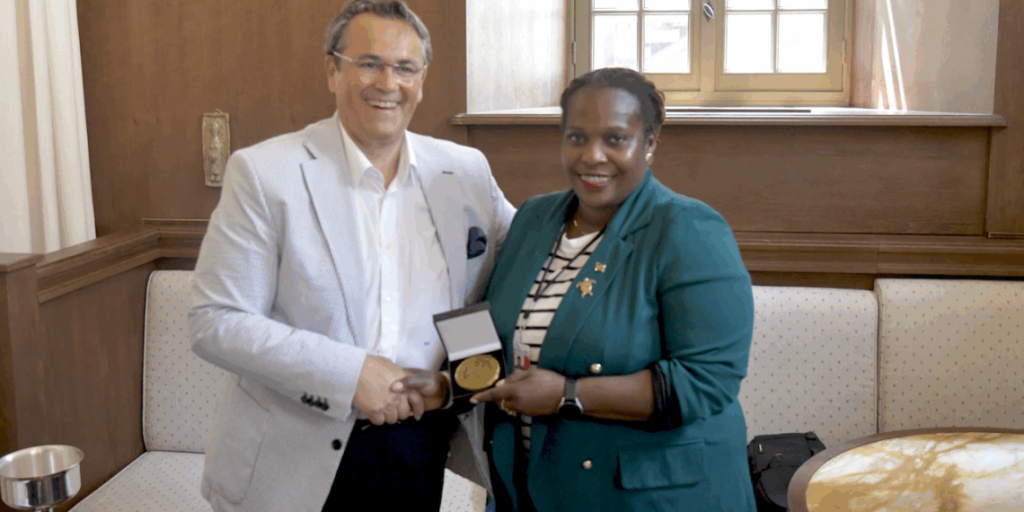Minister Clarke Emphasizes the Crucial Role of Small Island Nations in Global Climate Solutions
Small Island Developing States (SIDS) at the Forefront of the Climate Crisis
Small Island Developing States (SIDS) are disproportionately vulnerable to the impacts of climate change, facing existential threats from rising sea levels, intensified storms, and altered ecosystems. Their unique geographical characteristics, limited resources, and dependence on climate-sensitive sectors like tourism and fisheries make them acutely susceptible to even incremental changes in global temperatures. Despite contributing minimally to greenhouse gas emissions, SIDS bear the brunt of the climate crisis, highlighting a fundamental inequity in the global climate system. The call for increased attention and support for SIDS within the broader climate discourse is not merely a plea for assistance; it is a recognition of their crucial role in developing innovative climate solutions and advocating for ambitious global action. The voices and experiences of SIDS provide invaluable insights into the practical challenges and opportunities associated with climate adaptation and resilience.
Amplifying the Voice of SIDS in Global Climate Negotiations
The historical marginalization of SIDS in international climate negotiations underscores the urgent need to amplify their voices and ensure their concerns are central to global climate policy. Often overlooked due to their small size and limited political clout, SIDS possess a unique understanding of the interconnectedness between climate change, environmental sustainability, and socio-economic development. Their lived experiences offer practical lessons on community-based adaptation, ecosystem management, and disaster risk reduction, which hold relevance for countries worldwide. Effective climate action demands that SIDS are not merely recipients of aid but active participants in shaping global climate solutions, contributing their expertise and influencing international agreements. Their participation ensures that climate policies are equitable, inclusive, and reflect the realities of those most vulnerable to climate impacts.
The Importance of Equitable Climate Finance and Technology Transfer
Access to adequate and predictable climate finance is crucial for SIDS to implement adaptation and mitigation measures. Existing financial mechanisms often fall short of addressing the specific needs and vulnerabilities of these nations. Streamlined access to grants and concessional loans, along with innovative financing instruments tailored to the unique circumstances of SIDS, is essential. Moreover, facilitating the transfer of climate-friendly technologies is crucial for empowering SIDS to transition towards sustainable energy systems, enhance their resilience, and reduce their carbon footprint. Supporting capacity building initiatives and enabling access to cutting-edge technological solutions will equip SIDS with the tools needed to combat climate change effectively and build sustainable futures.
Integrating Traditional Knowledge and Sustainable Practices
SIDS possess a wealth of traditional knowledge and sustainable practices that offer valuable insights into climate adaptation and resilience. Indigenous communities have long adapted to changing environmental conditions, developing innovative strategies for managing natural resources, protecting coastal areas, and building resilient communities. Integrating this traditional knowledge with modern scientific approaches can lead to more effective and culturally appropriate climate solutions. Recognizing and respecting the rights of indigenous peoples and local communities is crucial for ensuring the sustainable implementation of climate policies and fostering inclusive climate action.
Strengthening Regional and International Cooperation
Addressing the climate crisis in SIDS requires strengthened regional and international cooperation. Collaboration between SIDS, developed countries, and international organizations is essential for sharing best practices, mobilizing resources, and supporting capacity building initiatives. Regional partnerships can facilitate the development of early warning systems, promote joint adaptation projects, and enhance disaster preparedness across island nations. At the international level, stronger commitments to emissions reductions from major emitters are fundamental for ensuring the survival of SIDS. The principle of common but differentiated responsibilities and respective capabilities, enshrined in the United Nations Framework Convention on Climate Change (UNFCCC), must underpin global climate action, recognizing the historical responsibility of developed countries for climate change and their greater capacity to contribute to solutions.
The Role of Education and Advocacy in Raising Awareness
Raising awareness about the specific climate vulnerabilities and resilience efforts of SIDS is crucial for galvanizing global support and action. Educational campaigns, public awareness initiatives, and advocacy efforts can amplify the voices of SIDS and highlight the urgency of the climate crisis. Engaging youth, civil society organizations, and the private sector in climate advocacy can create a powerful movement for change. Sharing the stories and experiences of SIDS communities can personalize the impacts of climate change and foster a sense of global solidarity. By fostering greater understanding and empathy, education and advocacy can play a vital role in driving transformative climate action and ensuring that SIDS are not left behind in the global effort to address this existential threat.
Share this content:












Post Comment